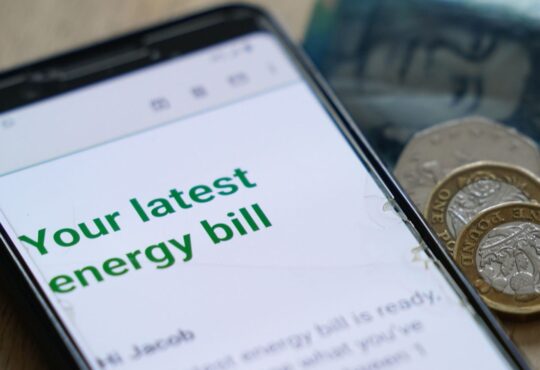
According to The Money Charity, UK households owed £1,846.5bn at the end of August — an increase of more than £35bn on the previous year, equating to an additional £660 per UK adult.The charity says this means the average annual interest payable per household last year was almost £2,400, adding that a credit card on the average interest rate would take 26 years and five months to repay by making just the contractual minimum repayment each month.
Don’t limit clients’ choices by leaving it too late
The level of a consumer’s unsecured credit could be pertinent to their longer-term mortgage borrowing plans because these additional monthly credit costs reduce their disposable income. This in turn may significantly impact a first charge lender’s affordability calculation, potentially reducing a client’s ability to borrow at the desired amount.
Resolution Foundation estimates that 1.6 million fixed-rate mortgages are due to expire in 2024, with those customers all facing a significant rise in payments for a like-for-like remortgage that will increase pressure on disposable income.
Used sensibly and effectively, debt consolidation can be a realistic route to becoming debt free.
In more severe instances, the generally larger first charge mortgage may have to be restructured over a longer term; contingencies such as interest-only may have to be explored; or, worse, they will fail to meet the new affordability assessment and be forced to remain on a higher variable-rate product.
Careful consideration
In some cases, and with the careful consideration of an experienced, specialist second charge adviser, debt consolidation can be a sensible tool to put a client in a stronger position to remortgage.
If a borrower holds a number of debts, they could be paying premium interest on each of them with no end in sight. A second charge mortgage may be suitable to streamline their debts into one monthly amount, and it can lower their monthly outgoings as well as decrease the chance of accidentally missing a monthly payment. But care should be taken when selecting which debts to consolidate, if any.
In some instances, we have been unable to help because of a lack of planning
A lower monthly outgoing could end up being more expensive in the longer term when considering fees for the second charge mortgage and repaying that debt over an extended period of many years.
When it comes to mortgage affordability, this is based on income versus monthly outgoings, so reducing the amount spent on servicing credit will produce a positive effect. In addition, a second charge mortgage is a known quantity; it will have a fixed end date, or a planned date when it will be absorbed into the main mortgage. Customers with open accounts on revolving credit have the potential to significantly increase their borrowing in the future without the need to apply for further credit. So, by paying off these accounts, and then closing them, borrowers can put themselves in a stronger position to secure the right remortgage.
The lesson is clear: brokers need to engage with clients in good time to fully understand their debt profile and financial position
Used sensibly and effectively, debt consolidation can also be a realistic route to becoming debt free. The balance will ultimately be paid off, so used correctly it can be smart financial planning by eventually paying off the balance of the longer-term or open-ended facilities.
With this in mind, brokers should contact clients well in advance of the expiration of their current deal to investigate whether they might benefit from restructuring their finance with debt consolidation.
At Brightstar, we’re receiving enquiries for second charge mortgages from those who can no longer pass an affordability test because their mortgage payment has either already increased or is due to increase in the next couple of months. Without effective planning, these clients could end up in financial limbo. They will not pass affordability for a further advance due to their level of debt, but they could also fail second charge affordability due to the higher interest rate on the first charge.
In some cases, debt consolidation can be a sensible tool to put a client in a stronger position to remortgage
The lesson from this is clear: brokers need to engage with clients in good time to fully understand their debt profile and financial position, and all potential outcomes need to be planned for to prevent foreseeable harm. In some instances, we have been unable to help because of a lack of planning. If we had been passed the client earlier while they were still paying their mortgage at the lower rate, we would have been better placed to provide solutions.
Debt consolidation or a second charge mortgage isn’t always the right option, but it is a valuable tool if it becomes necessary to secure a more favourable first charge mortgage. When evaluating your clients’ options in all areas of their finances, don’t limit their choices by leaving it too late.






